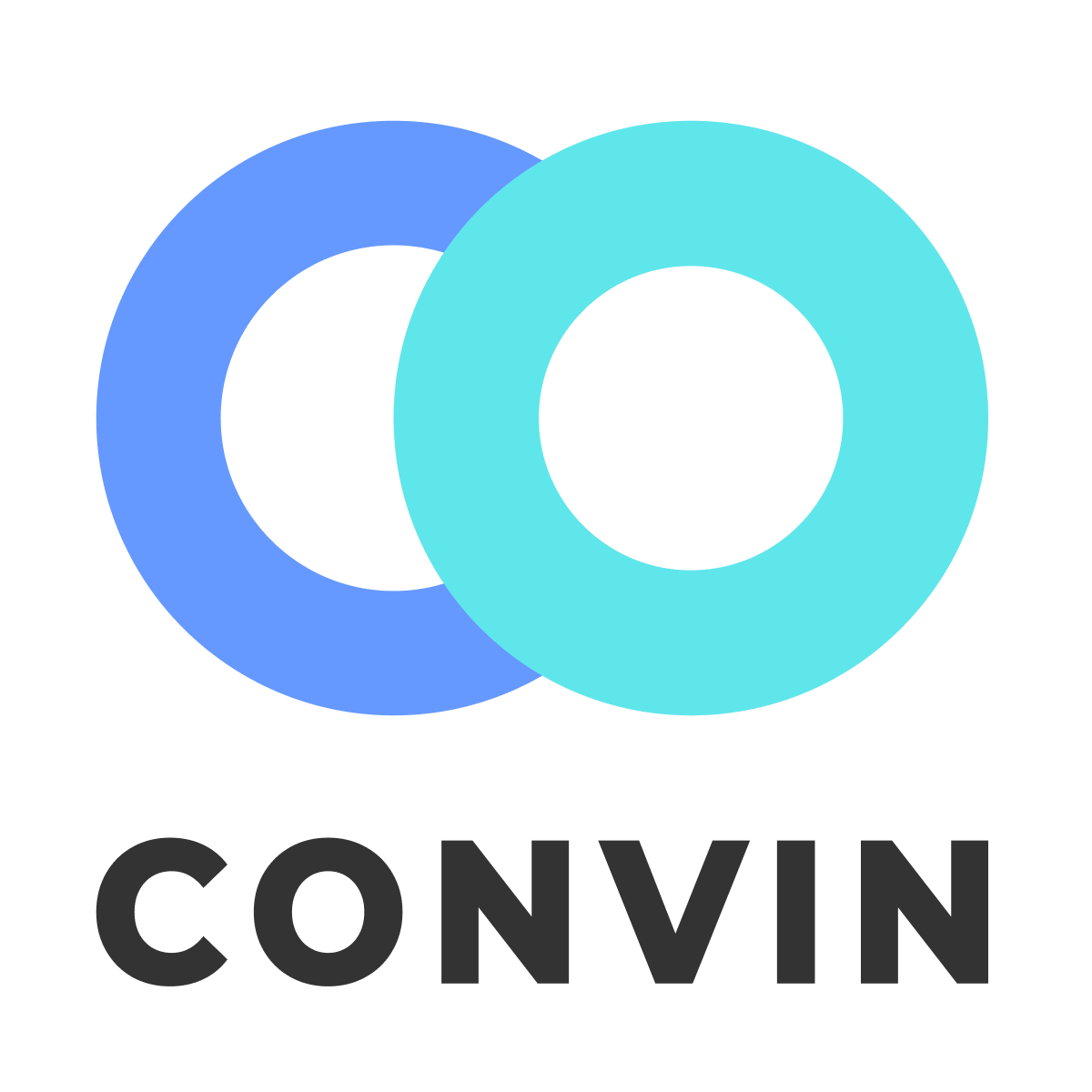Description

OnRamp

Convin

KodeKloud
Comprehensive Overview: OnRamp vs Convin vs KodeKloud
Here's an overview of OnRamp, Convin, and KodeKloud, focusing on their functions, target markets, market share, user base, and key differentiating factors:
OnRamp
a) Primary Functions and Target Markets:
- Primary Functions: OnRamp typically refers to programs or platforms designed to streamline and facilitate the integration of users or companies into new systems or industries. While specific details about a product named OnRamp may vary, it generally encompasses onboarding solutions, training programs, and integration platforms.
- Target Markets: Businesses looking for efficient onboarding solutions, tech firms moving to new infrastructure, or industries undergoing digital transformation processes.
b) Market Share and User Base:
- Since the term "OnRamp" is quite generic, detailed market share and user data would depend on the specific solution or domain. However, if referring to a specific onboarding solution, it might not have a standalone large market share but rather serve as a component within larger Onboarding or SaaS solutions.
c) Key Differentiating Factors:
- The unique selling points would include ease of integration, customization options, the speed of deployment, and the ability to facilitate seamless onboarding into complex systems or industries.
Convin
a) Primary Functions and Target Markets:
- Primary Functions: Convin is a conversation intelligence platform primarily focusing on improving sales teams' performance through AI-driven insights. It records, transcribes, and analyzes sales calls to provide actionable feedback.
- Target Markets: Sales teams, call centers, and other customer-facing teams aiming to enhance communication efficiency and effectiveness using AI analytics.
b) Market Share and User Base:
- In terms of market share, Convin operates in a niche yet growing market within sales enablement tools. Its user base would consist mostly of businesses investing in cutting-edge sales technology to boost team productivity.
c) Key Differentiating Factors:
- Its use of advanced AI for analyzing conversation patterns, ease of integration with CRM systems, and specific focus on actionable sales performance insights differentiate Convin in the conversation intelligence segment.
KodeKloud
a) Primary Functions and Target Markets:
- Primary Functions: KodeKloud is an online platform providing DevOps, cloud computing, and IT-related courses. It offers hands-on labs to help learners practice skills in environments that mimic real-world situations.
- Target Markets: IT professionals, developers, DevOps engineers, and students aiming to enhance their knowledge and skills in cloud technology and DevOps practices.
b) Market Share and User Base:
- KodeKloud has established a reputable presence in the online IT education sphere with a strong user base of professionals and students. It competes with platforms like A Cloud Guru and Linux Academy, focusing on practical, hands-on learning experiences.
c) Key Differentiating Factors:
- The emphasis on hands-on labs rather than just video content, offering a practical approach to learning that helps users quickly gain applicable skills in DevOps and cloud infrastructure, sets KodeKloud apart from many traditional e-learning platforms.
Comparison Overview
- OnRamp generally acts as an onboarding facilitator without specifics on market share due to its varied applications. Its differentiation lies in seamless integration and onboarding speed.
- Convin focuses on enhancing sales processes through conversation analytics, targeting sales and customer service teams. It leverages AI for insights, providing a unique advantage over traditional sales tools.
- KodeKloud specializes in IT and DevOps education, offering practical hands-on learning, which is its key strength. It holds a niche user base committed to skill enhancement in technological domains.
In conclusion, while each serves distinct purposes and targets different market segments, they are all united by their commitment to improving user experiences and business efficiencies through technology and innovative approaches.
Contact Info

Year founded :
2021
Not Available
Not Available
Canada
Not Available

Year founded :
2020
Not Available
Not Available
India
http://www.linkedin.com/company/convinmedia

Year founded :
2017
+1 916-445-1254
Not Available
Singapore
http://www.linkedin.com/company/kodekloud
Feature Similarity Breakdown: OnRamp, Convin, KodeKloud
To provide a detailed feature similarity breakdown for OnRamp, Convin, and KodeKloud, it's important to recognize that these platforms might serve somewhat different needs but can have overlapping features. Here's a general analysis based on typical functionalities associated with platforms in their domains:
a) Core Features in Common
-
Learning Management Systems (LMS):
- All three platforms likely offer some form of educational content delivery, tracking, and management as part of their core functions.
-
User Accounts and Profiles:
- A mechanism for users to create accounts, manage profiles, and track their progress or interactions with the platform.
-
Content Accessibility:
- Provision for accessing learning materials, whether they be courses, tutorials, or webinars.
-
Progress Tracking:
- Tools to track user progress and provide reports or analytics on their engagement or learning milestones.
-
Interactivity and Assessments:
- Quizzes, assignments, or interactive elements to test user understanding and retention of learned materials.
b) Comparing User Interfaces
-
OnRamp:
- Typically geared towards onboarding and training new employees, the UI is likely to focus on simplicity and ease of navigation, with clear modules and progress indicators to encourage seamless learning.
-
Convin:
- If Convin is a sales enablement or management platform, the interface might emphasize collaboration features, integrations with communication tools, and dashboards for performance analytics alongside learning modules.
-
KodeKloud:
- Known for its focus on IT and DevOps training, KodeKloud's UI is likely to be more technical, offering a blend of video tutorials, interactive labs, and sandbox environments. The emphasis on hands-on learning suggests a UI designed to facilitate easy transitions between instruction and practice.
c) Unique Features
-
OnRamp:
- May feature tools specifically for onboarding new hires, such as customizable onboarding paths, compliance training modules, and HR integrations that are not a priority for the others.
-
Convin:
- Unique features might include CRM integration, sales call analytics, or AI-driven insights, which distinguish it as a platform focused on enhancing sales efficiency and communication skills.
-
KodeKloud:
- Provides specialized content through simulations and real-world scenarios, possibly using a unique blend of hands-on labs with an environment that mimics actual IT infrastructure, which sets it apart as a technical training platform.
Each of these platforms serves its specialized niche, and their unique features are reflective of their target audiences. Users should evaluate them based on specific needs to determine the best fit for their learning and development goals.
Features

Not Available

Not Available

Not Available
Best Fit Use Cases: OnRamp, Convin, KodeKloud
To effectively determine the best fit use cases for OnRamp, Convin, and KodeKloud, as well as how they cater to different industry verticals or company sizes, let’s explore each platform based on its core functionalities and strengths. Please keep in mind that product specifics can change over time as companies evolve, so this analysis is based on the latest known data.
a) OnRamp
Business/Project Types:
- Startups and SMEs: OnRamp is often geared toward small to medium-sized enterprises and startups looking for scalable solutions. It provides resources that help young businesses ramp up operations, particularly in areas like sales, marketing, and customer acquisition.
- Technology & SaaS Companies: Businesses that need to streamline onboarding processes or are focused on rapid scaling can benefit from OnRamp’s offerings.
Industry Verticals/Company Sizes:
- Tech Startups: Emphasis on growth and onboarding for new users or clients.
- Educational Programs: Organizations that need onboarding curriculums or learning pathways might use OnRamp.
- Small Enterprises: Those looking to optimize their initial phases of business growth without a high initial capital requirement.
b) Convin
Business/Project Types:
- Customer Service Enhancements: Convin may be well-suited for businesses focused on enhancing customer service operations, as it leverages conversation intelligence to improve customer interactions.
- Sales Teams: Sales-oriented companies seeking to improve their team’s performance and customer interaction insights might prefer Convin’s analytical approach.
Industry Verticals/Company Sizes:
- Retail and E-commerce: Companies in these sectors can use Convin to analyze customer interactions and improve sales techniques.
- Telecommunications: Businesses with large customer service operations might find value in conversation analysis.
- Financial Services: Institutions can potentially use the insights from customer interactions to refine service offerings.
c) KodeKloud
Business/Project Types:
- IT Training and Development: KodeKloud serves users and organizations focused on IT, DevOps, and Cloud-related training. It is ideal for companies seeking to upskill their employees in these areas.
- Continuous Learning Programs: Technical teams needing constant skill upgrades in a rapidly evolving tech landscape would benefit greatly from this platform.
Industry Verticals/Company Sizes:
- Educational Institutions: Those offering courses or certifications in IT and cloud services can enhance their offerings using KodeKloud.
- Tech Enterprises of All Sizes: Especially beneficial for companies keen on keeping their technical staff up-to-date with the latest developments in cloud and IT solutions.
- Consulting Firms: Firms that need to ensure their consultants are constantly learning new technologies and methodologies.
d) Industry Verticals and Company Sizes
- OnRamp focuses on helping smaller and younger companies scale efficiently, catering primarily to tech startups and SMEs across various sectors.
- Convin is preferred by mid-to-large companies that emphasize customer interaction insights, suitable for industries with large customer bases like telecommunications, retail, and financial services.
- KodeKloud is optimal for institutions and enterprises, regardless of size, in the tech industry wanting to maintain a competitive edge through continued education and skill development.
In summary, the choice between these three platforms depends heavily on the specific needs of the business relating to scale, customer interactions, and IT development, allowing them to cater to diverse industry verticals and organization sizes effectively.
Pricing

Pricing Not Available

Pricing Not Available

Pricing Not Available
Metrics History
Metrics History
Comparing teamSize across companies
Conclusion & Final Verdict: OnRamp vs Convin vs KodeKloud
To provide a detailed analysis and conclusion for OnRamp, Convin, and KodeKloud, I must take into account various factors like features, usability, pricing, target audience, and user feedback. Keep in mind that specific details may vary, and prospective users should always consider their unique needs.
Conclusion and Final Verdict
a) Best Overall Value
The product offering the best overall value depends heavily on the user's specific needs, such as the industry they are in, their learning objectives, and budget constraints. Here's a general assessment:
- OnRamp: May appeal best to industries or users focused on practical, step-by-step learning processes, particularly those associated with onboarding or skill development.
- Convin: Likely offers strong value for users looking for solutions around sales enablement and conversation analytics, especially for teams looking toward improving sales techniques and outcomes.
- KodeKloud: Often a top contender for those in the tech sector looking for specialized training, providing courses around cloud computing, DevOps, and related technologies.
Given the specialized nature of each product, KodeKloud provides the best overall value for individuals or organizations seeking comprehensive and targeted tech training solutions. However, users in sales-focused roles may find Convin more valuable, while those seeking well-rounded onboarding solutions might prefer OnRamp.
b) Pros and Cons
OnRamp
- Pros:
- Effective onboarding processes.
- Easy to use and adaptable for skill development.
- Strong support and customization options.
- Cons:
- May be too generalized for specialized training needs.
- Pricing could be higher compared to more niche solutions.
Convin
- Pros:
- Excellent for analyzing and improving sales performance.
- Provides valuable insights with AI-driven analytics.
- Good for scaling sales strategies across teams.
- Cons:
- Primarily focused on sales, limiting its appeal to other departments.
- Learning curve associated with mastering analytics tools.
KodeKloud
- Pros:
- Extensive library of tech-focused courses.
- Practical, hands-on labs provide real-world experience.
- Regularly updated with current industry trends.
- Cons:
- Primarily useful for tech-related fields.
- Could be overwhelming for beginners without tech backgrounds.
c) Recommendations for Users
- For Tech Learners: Choose KodeKloud if you need comprehensive courses and hands-on labs in DevOps, Kubernetes, AWS, and cloud computing.
- For Sales Teams: Opt for Convin if you want to leverage AI analytics to enhance conversation outcomes and sales performance.
- For General Training Needs: Consider OnRamp if you're looking for structured onboarding or skill development programs that are not necessarily tech-focused.
Final Recommendation: Users should conduct a detailed assessment of each platform's offerings against their specific training needs and budget. Consider trial periods, user reviews, and case studies to make an informed decision.